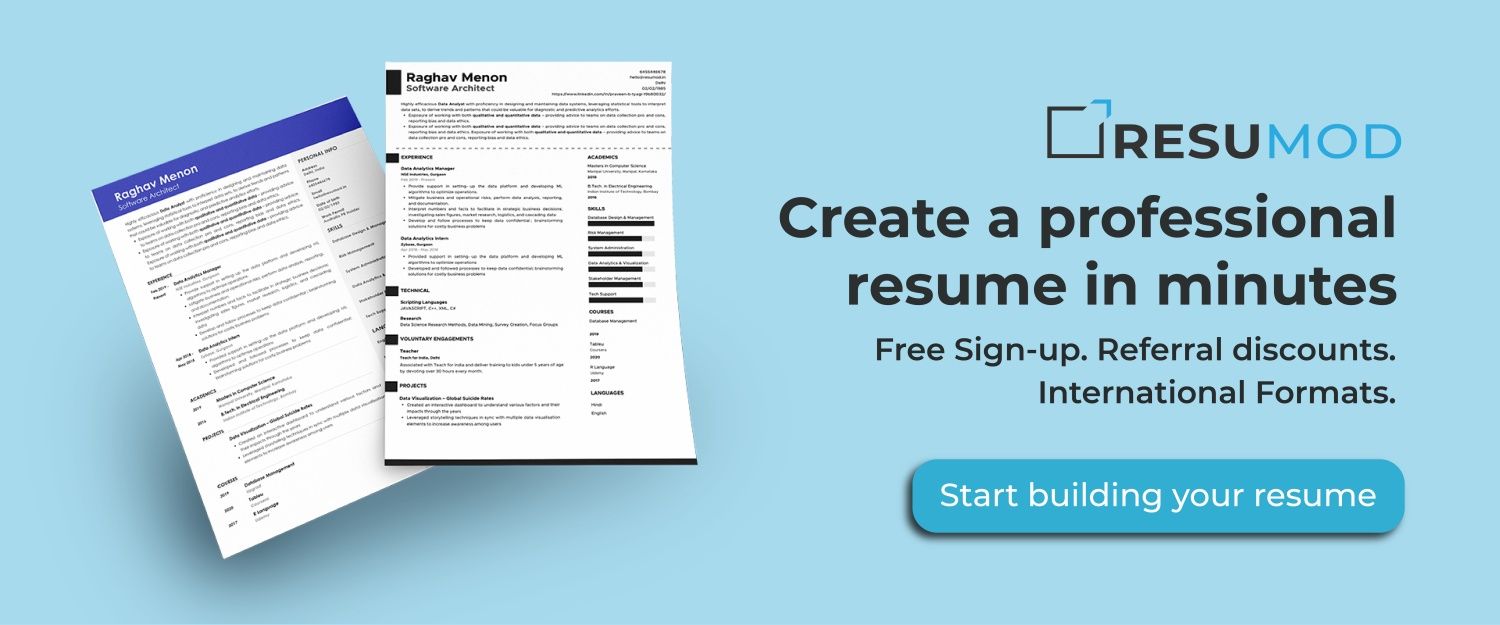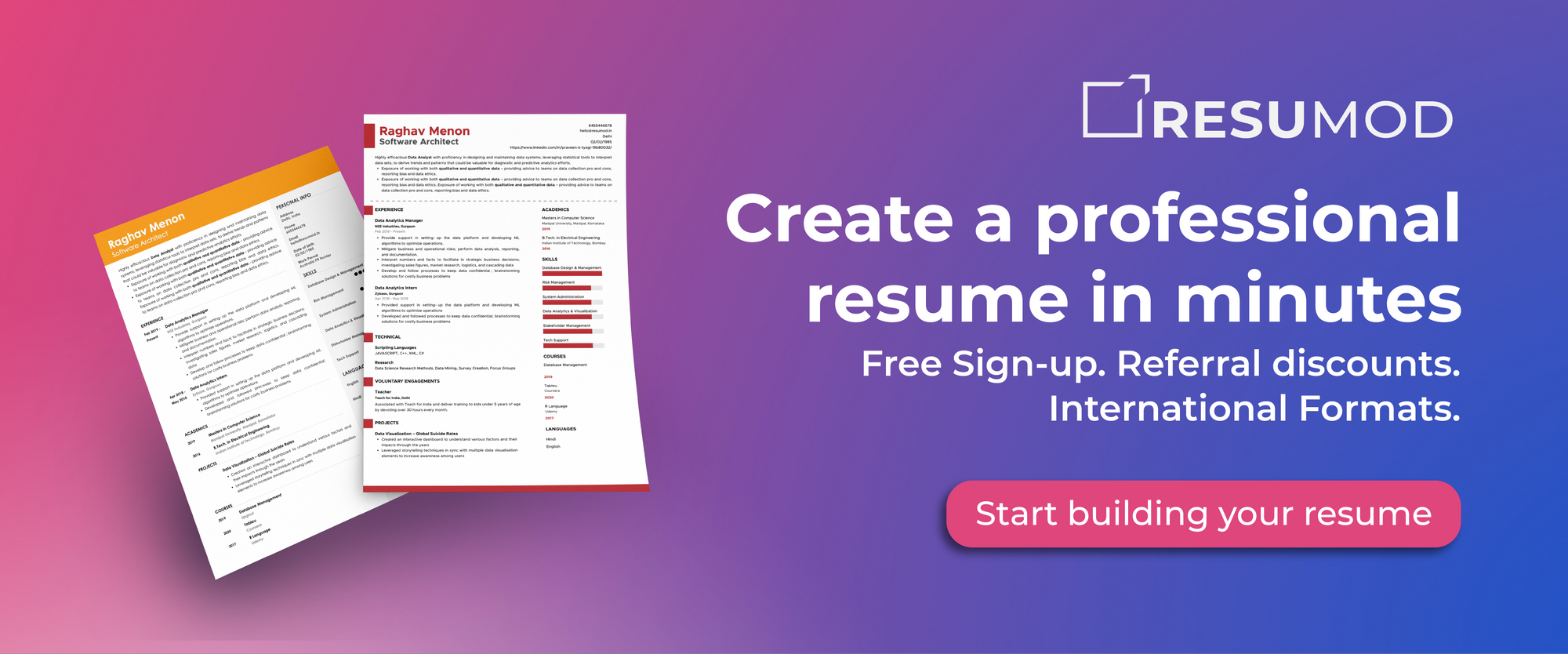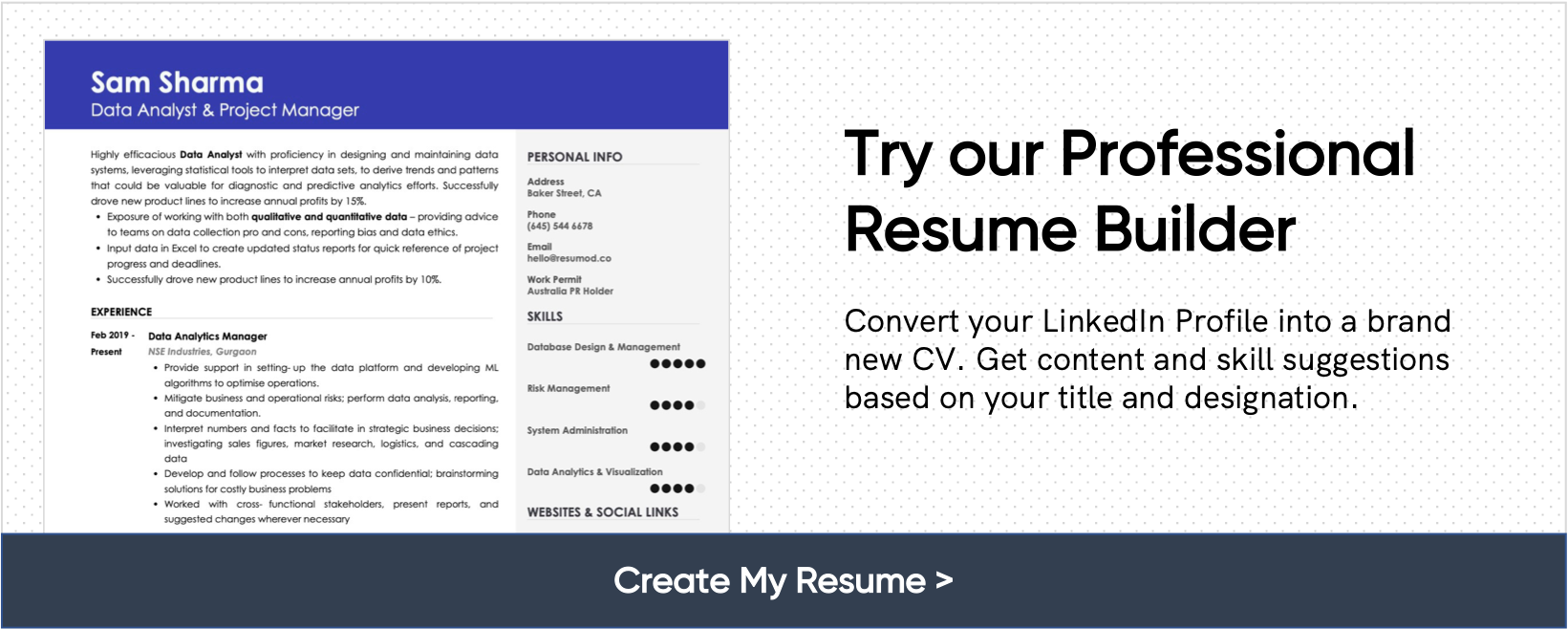How To Nail The Entire Job Application Process
A job application process refers to the series of steps that individuals go through when applying for a job. These steps are submitting an application, providing relevant documents, and participating in various assessments and interviews
A job application process refers to the series of steps that individuals go through when applying for a job. These steps are:
- Submitting an application
- Providing relevant documents
- Participating in various assessments and interviews
Here is a detailed overview of these:
- Job Search: Identifying suitable job openings through online job boards, company websites, professional networking platforms, or referrals.
- Application Submission: Submitting your application, which usually includes a resume/CV, cover letter, and any additional documents or forms required by the employer. Some companies may use online application forms, while others may require email or physical mail submissions.
- Application Screening: The employer reviews submitted applications to shortlist candidates. This initial screening helps narrow down the pool of applicants.
- Assessments: Applicants may be asked to complete assessments such as online tests, skills evaluations, or personality assessments. These assessments help the employer gauge the candidates' suitability for the role.
- Interviews: Candidates who pass the initial screening and assessments are invited for interviews. Interviews may be conducted in different formats, including phone interviews, video interviews, or in-person interviews.
- Reference Checks: Employers may request references from candidates to verify their qualifications and character. References include previous employers, colleagues, or academic mentors.
- Background Checks: This includes verifying educational credentials, employment history, criminal records, and other relevant details. Consent from the candidate is usually required for these checks.
- Decision and Job Offer: If you are selected, you are extended a job offer. A job offer includes details about the position, compensation, benefits, and other relevant terms. Candidates have the option to accept, negotiate, or decline the offer.
In this process,
Your resume speaks a lot about you, but resume shortlisting is just one part of the hiring process. You need to carefully stand by what you write in your resume during the whole interview process. Any mismatch of information during the interview is among the major “deal breaker” issues for recruiters.
Similarly, there are many things to keep in mind which help you get recruited.
This blog will give your insights into “how to nail the entire job application process”. In today’s blog, we will cover the following topics:
- Identifying your strengths and weaknesses
- Developing a strong resume and cover letter
- Researching potential employers
- Networking and building professional relationships
- Preparing for job interviews
- Following up after job interviews
- Keeping a positive outlook
- Top-rated resumes on Resumod
Identifying Your Strengths And Weaknesses
One of the first steps in the job application process is to take some time to reflect on your skills, experience, and career goals. By understanding your core strengths and weaknesses, you can tailor your job search and application materials to best showcase your skills and experience.
This step gives you clarity about your future goals and reflects back on what truly matters to you. Consider the following tips:
#Tip 1 Conduct a Self-Assessment
Start by assessing your own skills, experience, and career goals. Make a list of your core strengths and weaknesses, and consider how they align with the job you are applying for. It is like conducting a small SWOT analysis to find out what works for you.
#Tip 2 Seek Feedback from Others
Ask for feedback from mentors, colleagues, or other professionals to gain a more objective perspective on your strengths and weaknesses. This can help you identify areas for improvement or potential blind spots. You can also connect with industry experts on LinkedIn.
Developing a Strong Resume and Cover Letter
Your resume and cover letter are often the first impression that employers have of you. It's therefore important to have a well-tailored resume to stand out.
Here are some tips to create a strong application package:
#Tip 1 Tailor your Resume Specific to the job Job Description
The biggest mistake is using one single resume for all job profiles. Though similar, every job is different and requires a different skill set. So tailor your resume for each job you apply to. Use keywords from the job description of the job you are applying for to highlight your relevant experience and skills. Quantify your achievements with specific numbers or percentages to show the impact of your work.
#Tip 2 Craft a Personalized Cover Letter
Customize your cover letter to show your interest in the company and position, and highlight why you are the best fit for the role. Use specific examples to demonstrate your skills and experience.
#Tip 3 Use a Professional Format
Make sure your resume and cover letter are easy to read and visually appealing. Use a clean and simple design, and avoid using flashy fonts or graphics. Flashy fonts make it difficult for the reader to read the resume and in some cases might not even be accepted by the system.
If you are struggling with finding formats, Resumod offers 15 ready-to-use templates. Check them out here
Researching Potential Employers
Before applying for a job, research the company and learn as much as you can about its culture, mission, and reputation. Sometimes, it is not only the job that you don't like, factors like work culture and timing also affect your work life massively.
Use the tips given below to research for potential employers:
A) Visit the Company's Website
Look for information about the company's history, mission, and values. Check out their careers page to see if they have any job openings that match your skills and experience.
B) Check Social Media
Look for the company on social media sites like LinkedIn to see what current and former employees have to say about working there. Also, connect with the profile of the recruiters, to get updated if there are any ongoing hiring or any upcoming ones in the near future.
C) Attend Industry Events And Job Fairs
Attend networking events and job fairs to meet representatives from potential employers and learn more about their hiring needs.
While doing all this, also track:
- Company culture
- Employee ratings
- Location
Networking and Building Professional Relationships
Networking is an important part of the job application process, as it can help you learn about job opportunities and build professional relationships.
Networking is relatively new to job search. Everyone does not know about it. Even those who do, don't know how to use it to its maximum potential. So if you are among the few who network well, you can get a job opportunity faster.
- Join professional associations related to your field to connect with other professionals and learn about industry trends.
- Attend networking events, both in-person and online, to meet others in your industry and learn about job opportunities.
- Keep your LinkedIn profile up-to-date and connect with others in your network to stay informed about new job opportunities.

Preparing for Job Interviews
Once you've landed an interview whether through networking or a traditional job search, it's important to prepare thoroughly to make a great impression.
A) Research the Company and the Position
Learn as much as you can about the company and the position you are applying for. Review the job description and research the company's website and social media pages. If possible, talk to their employees by reaching out to them on platforms like LinkedIn.
B) Practice your Responses
Practice your responses to common interview questions with a friend or mentor. Rehearse your elevator pitch to introduce yourself confidently.
C) Prepare Questions to Ask
Make sure you do have a response to “Is there anything you would like to know ask” by the recruiter at the end of the interview. This is a very crucial question to check your interest in the company. Prepare a list of questions to ask the interviewer to demonstrate your interest and engagement with the position.
We have prepared a detailed guide on preparing for an interview. Check it out here
Following up after Job Interviews
Following up after an interview is a great way to stand out among others and catch the recruiters' eye even after the interview stage. Simply, send a thank-you note or email within 24 hours of the interview to express your appreciation for the opportunity. Reiterate your interest in the position, and highlight any key takeaways or next steps from the interview.
Follow up on any action items discussed during the interview, such as providing additional information or completing a skills assessment.
Keeping a Positive Outlook
Throughout the job application process, it's important to keep a positive attitude. This means staying motivated and persistent, even if you don't land the first few jobs you apply for. It also means being professional and respectful in all your interactions with the company and its representatives.
Top-rated resumes on Resumod
Resume of Nuclear Security Specialist

Check the full resume of Nuclear Security Specialist in text format here
Resume of ETL Developer

Check the full resume of ETL Developer in text format here
Resume of Compost Facility Manager

Check the full resume of Compost Facility Manager in text format here
Resume of Landfill Manager

Check the full resume of Landfill Manager in text format here
Resume of Employment Lawyer

Check the full resume of Employment Lawyer in text format here
Resume of Service Engineer

Check the full resume of Service Engineer in text format here
Resume of Pharmacovigilance Analyst

Check the full resume of Pharmacovigilance Analyst in text format here
Resume of Transportation Specialist

Check the full resume of Transportation Specialist in text format here
Resume of Fragrance Developer and Evaluator

Check the full resume of Fragrance Developer and Evaluator in text format here
Resume of Front End Developer

Check the full resume of Front End Developer in text format here.
Resume of Head of Corporate Affairs

Check the full resume of Head of Corporate Affairs in text format here.
Resume of Category Manager

Check the full Resume of Category Manager in text format here
Resume of Data Mining Engineer

Check the full resume of Data Mining Engineer in text format here
Resume of Online Tutor

Check the full resume of Online Tutor in text format here
Resume of Business Intelligence Analyst

Check the full resume of Business Intelligence Analyst in text format s
Resume of Data Warehousing Specialist

Check the full resume of Data Warehousing Specialist in text format here
Resume of Audio Engineer

Check the full resume of Audio Engineer in text format here
Resume of Child Law Specialist

Check the full resume of Child Law Specialist in text format here
Resume of HR Information Specialist

Check the full resume of HR Information Specialist in text format here
Resume of Personal Finance Officer

Check the full resume of Personal Finance Officer in text format here
Conclusion
Nailing the job application process requires a combination of research, preparation, and persistence. By taking the time to research potential employers, crafting strong application materials, preparing for interviews, following up after interviews, and being prepared for rejection, you can increase your chances of landing your dream job.
It's important to stay positive and persistent throughout the process and to seek support from friends, family, or a career counselor if needed. By following these tips and strategies, you can approach the job application process like a pro and increase your chances of success.
Remember, every application is a learning opportunity, and with each one, you'll gain valuable insights and experience that will help you grow as a job seeker.



